NFTs
Why Are NFTs Bad? The Problem And Legal Issues
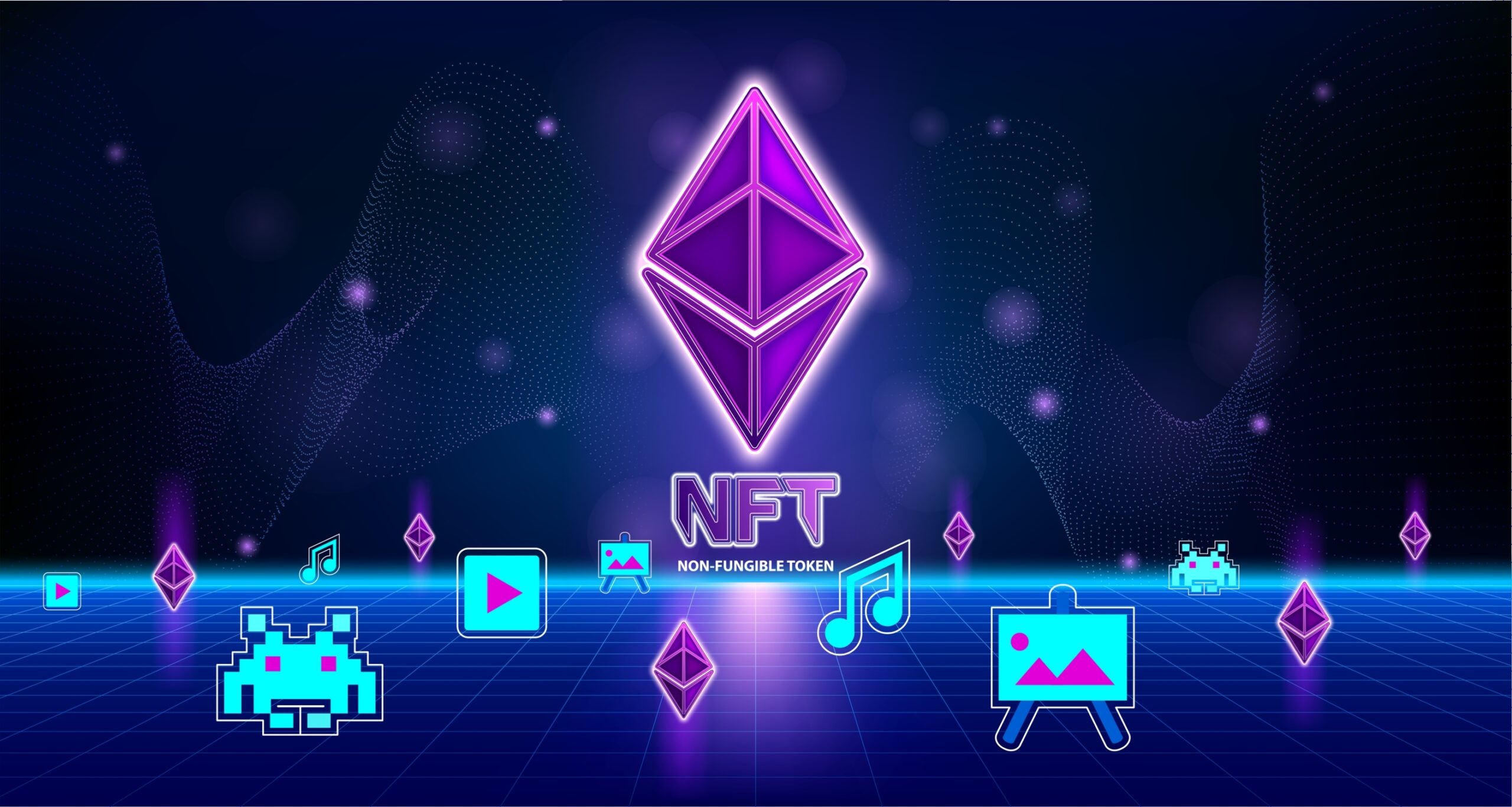
Why Are NFTs Bad? This pressing question underscores today’s heated discussions around Non-Fungible Tokens (NFTs). Despite the buzz, many investors are left grappling with unsellable NFTs, questioning their value and security. This article cuts through the noise to examine the critical issues and legal challenges surrounding NFTs.
We navigate the complex NFT laws, dissect the reasons behind the unsellable nature of some digital assets, and address the underlying problems fueling the skepticism. With focused insights, we aim to shed light on the darker aspects of NFTs to answer the question: are NFTs bad?
Why Are NFTs Bad?
The question “Why are NFTs bad?” resonates in the digital world, particularly among those cautious about the rapidly evolving blockchain technology. NFTs, or Non-Fungible Tokens, have garnered attention for their unique ability to represent ownership of digital assets. However, beneath the surface of this innovative technology lies a web of concerns that have led many to question their overall value and impact.
Understanding NFTs: A Brief Overview
NFTs are digital tokens that represent ownership of unique items, using blockchain technology to certify authenticity and ownership. Each NFT stands out as distinct, unlike cryptocurrencies such as Bitcoin or Ethereum, which are fungible and allow for one-to-one exchanges. They can represent anything digital, such as art, music, or even tweets.
NFTs derive their uniqueness from granting a feeling of exclusivity and ownership over digital assets, which have traditionally been easily replicated and distributed. By tokenizing these assets on a blockchain, NFTs create a digital scarcity and a verifiable way to claim ownership.
However, the rise of NFTs has not been without controversy. Their detractors point to several key issues: technical issues questioning the longevity of NFTs, the potential for market manipulation, and the creation of a speculative bubble where the value of digital assets is highly uncertain. Furthermore, the legal landscape surrounding NFTs is still evolving, with questions about copyright and ownership rights at the forefront.
Exploring The Main Question: Why Are NFTs Bad?
While NFTs have their benefits, the growing concerns cannot be overlooked. The main question, “Why are NFTs bad?” stems from several critical issues associated with their use and functionality.
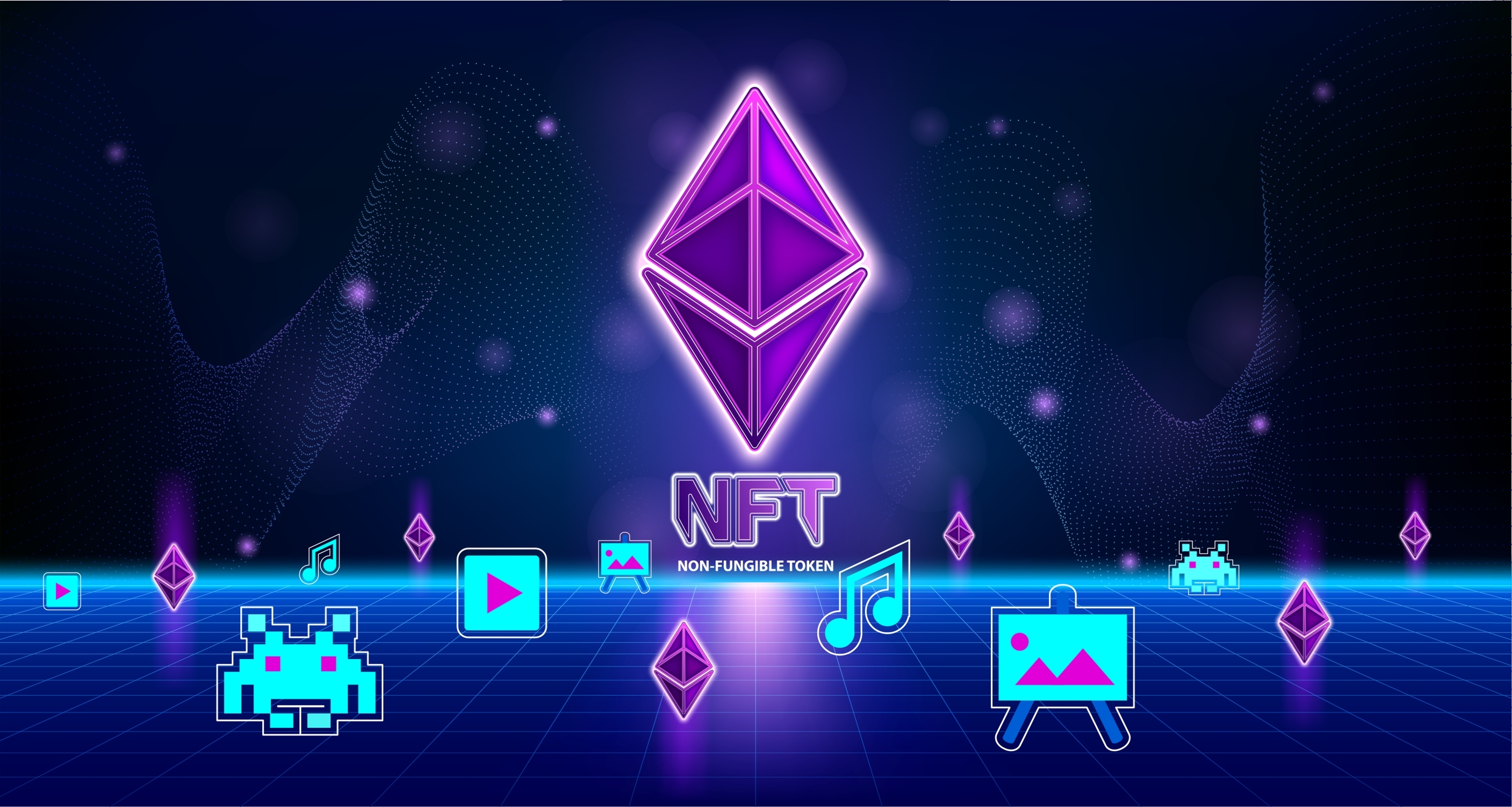
Technical Challenges And Longevity Concerns
The appeal of NFTs on blockchains such as Ethereum is diminished by various technical challenges, raising questions about their long-term viability and dependability as digital assets. Here are some technical reasons for “why are NFTs bad”:
- Off-Blockchain Asset Storage: Most NFTs, especially on Ethereum, link to digital assets like images stored off the blockchain due to Ethereum’s size and cost constraints. These assets are often hosted on platforms like IPFS (InterPlanetary File System), not directly on the blockchain.
- External URL Vulnerability: The use of external storage like IPFS raises questions about the longevity and accessibility of the linked digital assets. The potential obsolescence of these platforms poses a risk to the permanence of NFTs.
- Blockchain-Specific Uniqueness: The uniqueness of an NFT is limited to its native blockchain, like Ethereum. The same asset can be tokenized on different blockchains, challenging the notion of uniqueness.
- Duplicate NFT References: NFTs can reference the same digital asset via HTTP links, leading to multiple NFTs for a single asset within the same blockchain, contrary to their non-fungible nature.
Market Manipulation And Speculative Bubble
The NFT market is not just a platform for digital creativity but also a hotbed for speculation and potential market manipulation, raising significant concerns. Following are some market-related reasons for “why are NFTs bad”:
- Speculative Investments: NFTs have become symbols of speculative investment, with prices often driven by hype rather than intrinsic value. High-profile sales, like that of Beeple’s artwork, have attracted a wave of investors looking to capitalize on potential market booms. This speculation can inflate prices artificially, creating a bubble where the value of NFTs is grossly overestimated.
- Risk Of Market Manipulation: The NFT marketplace is vulnerable to manipulation due to its relatively unregulated nature and the opacity of transactions. There have been instances where artists or sellers artificially inflate the value of an NFT by purchasing their own assets through third parties. This tactic creates a false impression of high demand and value, luring unsuspecting buyers into overpaying.
- Impact Of Celebrity Endorsements: The involvement of celebrities and influencers in promoting NFTs further fuels the speculative bubble. Their endorsements can lead to rapid spikes in prices and interest, often without a sustainable basis. While celebrity involvement has brought mainstream attention to NFTs, it also raises questions about the genuine value and long-term viability of these assets.
- Volatility And Unsustainability: High volatility marks the NFT market, featuring significant fluctuations in value. This instability renders NFT investments risky, especially for individuals not deeply familiar with the digital asset landscape.
Legal Ambiguity
The burgeoning world of NFTs is mired in legal ambiguities, making it a complex landscape to navigate for creators, collectors, and investors alike. Below are some legal reasons for “why are NFTs bad”:
Unclear Copyright And Ownership Rights:
One of the fundamental legal challenges with NFTs is the ambiguity surrounding copyright and ownership rights. Purchasing an NFT often grants the buyer ownership of a unique token, but not necessarily the copyright of the underlying digital asset. This distinction can lead to confusion and disputes over what buyers are actually entitled to when they acquire an NFT.
Varying International Laws:
The legal recognition of NFTs varies significantly across different jurisdictions. While some countries may have specific regulations governing digital assets, others lack clear guidelines. This inconsistency presents challenges, particularly in cases involving cross-border transactions or disputes.
Smart Contract Complexities:
NFTs operate on smart contracts—self-executing contracts with the terms of the agreement directly written into code. However, the legal status of these contracts is not always clear. Issues arise when smart contracts, which are immutable once deployed, contain errors or do not align with legal standards. Rectifying these issues can be complicated and may require litigation.
Regulatory Uncertainty:
The regulatory landscape for NFTs is still in its infancy. Financial regulators in various countries are grappling with how to classify NFTs—whether as securities, commodities, or a completely new asset class. This lack of regulatory clarity adds to the uncertainty, particularly regarding compliance with existing financial laws and anti-money laundering (AML) requirements.
Liability And Consumer Protection:
The decentralized nature of NFT marketplaces often leaves consumers with limited recourse in cases of fraud, theft, or disputes. In such scenarios, the issue of liability remains mostly unresolved, and consumer protection mechanisms are not as strong as those in traditional financial markets.
NFT Pros And Cons
The world of Non-Fungible Tokens (NFTs) presents a mixed bag of advantages and drawbacks. Understanding these pros and cons is essential for anyone looking to engage with NFTs, whether as creators, collectors, or investors.
Pros Of NFTs:
- Digital Ownership And Provenance: NFTs provide a clear proof of ownership and provenance for digital assets. They enable artists and creators to monetize digital works, which were previously easy to replicate and difficult to sell as unique pieces.
- Market Expansion For Artists: NFTs have opened up new markets for digital artists and creators, allowing them to reach a global audience. This democratization of art sales has empowered artists, especially those outside the traditional gallery system.
- Innovation And Creativity: The NFT space encourages innovation and creativity, particularly in digital art and multimedia. It has sparked new forms of artistic expression and collaboration.
- Collectibility And Investment: For collectors, NFTs offer a new avenue for investment in digital art and collectibles. The unique nature of NFTs makes them appealing as collectible items.
Cons Of NFTs:
- Technical Issues: On blockchains like Ethereum, NFTs present several technical issues, questioning their longevity. Being aware of these issues is crucial.
- Market Volatility And Speculation: The NFT market is highly volatile, with values fluctuating dramatically. This instability, coupled with speculative investments, poses risks for buyers and sellers.
- Intellectual Property Issues: The legal ambiguity around copyright and ownership rights in NFTs creates complications for intellectual property law. Buyers might not fully understand what rights they are acquiring, leading to potential legal disputes.
- Accessibility And Inclusivity Issues: Despite their potential for democratizing art, NFTs also pose challenges in terms of accessibility and inclusivity. The technical and financial barriers to entry can be high, limiting participation to a more tech-savvy and financially capable audience.
The Dark Side: Unsellable NFTs And Market Risks
The world of NFTs is not just about innovation and lucrative opportunities. There’s a darker side to this market, characterized by the phenomenon of unsellable NFTs and significant market risks that raise critical questions about the overall safety and soundness of investing in these digital assets. This adds another layer to the question “why are NFTs bad.”
The Reality Of Unsellable NFTs
While NFTs have been sold for staggering amounts, the reality is that not all NFTs find buyers, leading to a growing concern over unsellable NFTs. Several factors contribute to this situation:
- Market Saturation: As more creators and investors flood into the NFT space, the market is becoming increasingly saturated. This saturation makes it harder for individual NFTs to stand out, reducing their likelihood of being sold.
- Speculative Nature: Many NFTs are bought for speculative purposes, with the hope of reselling for a profit. When the speculation bubble bursts, or if the hype dies down, the value of these NFTs can plummet, making them difficult to sell.
- Lack Of Intrinsic Value: Some NFTs may lack intrinsic artistic or collectible value, being created solely for the purpose of capitalizing on the trend. These NFTs may struggle to find a market.
- Liquidity Issues: The NFT market is not as liquid as other investment markets. Selling an NFT, especially at a desired price point, can be challenging and time-consuming.
Platforms like Unsellable specialize in purchasing these low-value NFTs for tax write-off purposes.
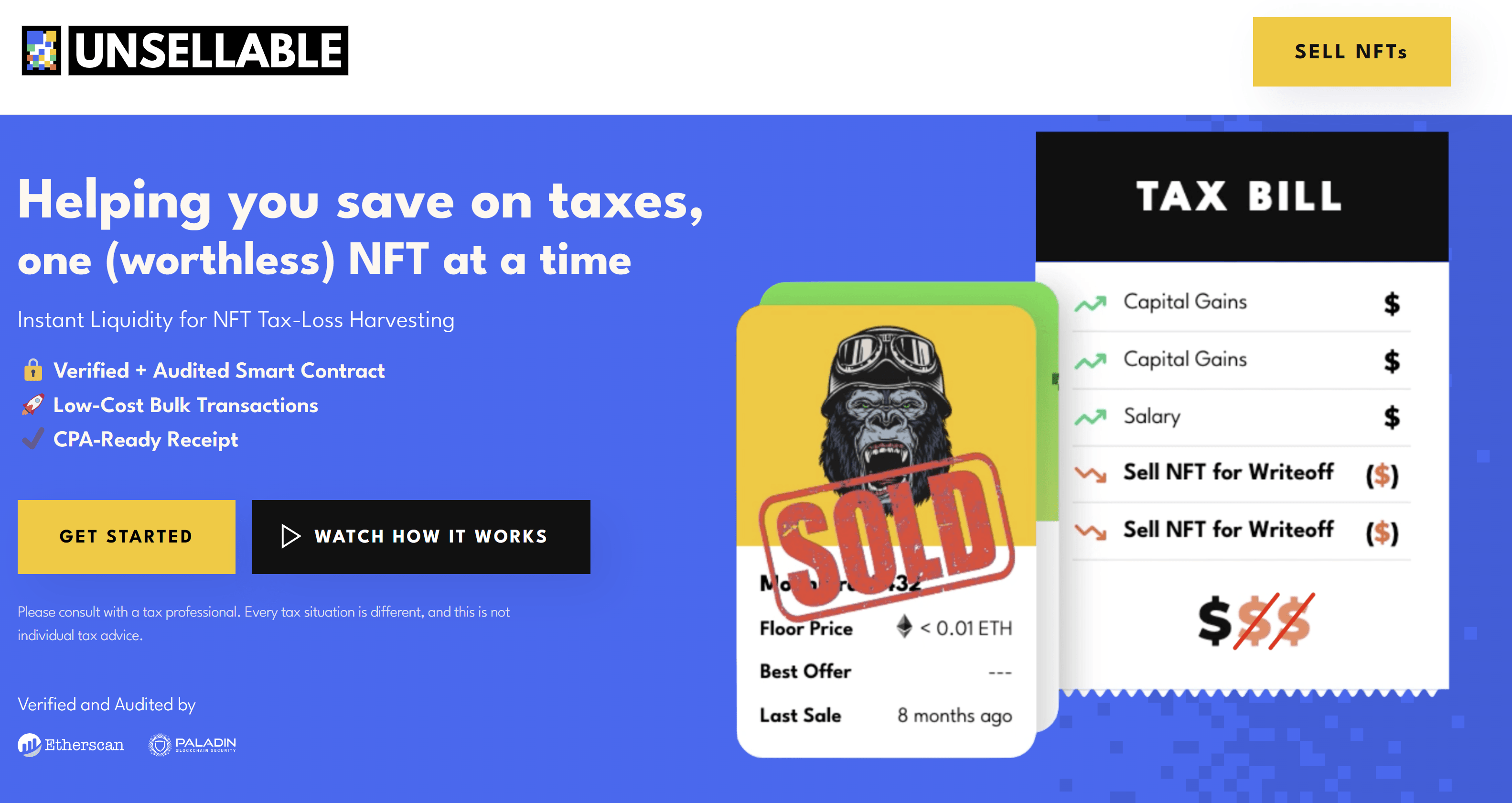 Tax-loss harvesting of NFTs | Unsellable NFTs
Tax-loss harvesting of NFTs | Unsellable NFTs
Are NFTs Bad?
The question “Are NFTs bad?” is complex. NFTs themselves are a neutral technology with potential for positive use, such as supporting artists and creating unique digital experiences. However, the issues of market saturation, speculative bubbles, and technical concerns add a negative aspect to this technology. The answer largely depends on how NFTs are used and the awareness of the buyers and sellers about the risks involved.
Are NFTs Safe?
The safety of investing in NFTs is a matter of perspective and depends on various factors:
- Technical Issues: NFTs on Ethereum face several problems that investors should be aware of.
- Market Volatility: The high volatility of the NFT market can lead to significant financial risks for investors.
- Legal and Technical Risks: As discussed earlier, there are legal ambiguities and technical challenges associated with NFTs, which can impact their long-term viability.
- Scams And Fraud: The NFT space, like any emerging market, is susceptible to NFT scams and fraudulent activities, which can pose risks to less experienced investors.

NFT Laws: Legal Challenges
Navigating the complex legal landscape of NFTs poses a challenge, given that these digital assets intersect various aspects of law in ways that are still evolving and being defined. The dynamic and rapidly evolving nature of NFTs has left lawmakers and stakeholders working to catch up with the legal implications which adds another argument to the question “why are NFTs bad”.
NFT Laws Decoded
The application of existing laws to NFTs is a challenging task, primarily because NFTs are a novel concept that doesn’t fit neatly into traditional legal categories. Intellectual property rights are at the forefront of legal concerns. When someone purchases an NFT, they acquire a token that represents ownership, but the extent of this ownership is often misunderstood. It rarely includes the right to reproduce or distribute the underlying digital asset, leading to potential legal disputes over copyright infringement and ownership rights.
Consumer protection laws are also critical in the NFT marketplace. These laws are designed to protect buyers from deceptive practices. However, the decentralized and often anonymous nature of blockchain transactions makes the enforcement of such laws challenging. The risk of fraud and misrepresentation is high, and buyers may find themselves with limited recourse in cases of dispute.
The classification of NFTs under financial regulations is another area of legal ambiguity. The structure and nature of certain NFTs might classify them as securities. For example, the US Securities and Exchange Commission charged Stoner Cats 2 for conducting an “unregistered offering of crypto asset securities,” depending on their specific characteristics. This categorization subjects them to stringent regulatory requirements, including registration and disclosure obligations under securities laws. However, the lack of clear guidance from regulatory bodies creates uncertainty for NFT issuers and investors.
NFT Legal Issues: A Detailed Analysis
Legal issues in the NFT space are diverse and multifaceted. Copyright and ownership disputes are common, particularly as the lines between digital ownership and copyright ownership are blurred. These disputes often involve multiple parties, including artists, digital platforms, and collectors, each with differing interpretations of their legal rights.
Smart contracts, which are the backbone of NFT transactions, present their own set of legal challenges. While these contracts are designed to be self-executing and immutable, they are not immune to legal scrutiny. Disputes can arise when the terms encoded in smart contracts conflict with statutory laws or when there are errors in the code. The resolution of such disputes often requires litigation, which can be complex and costly.
Taxation of NFT transactions is an emerging area of legal concern. The tax implications for buying, selling, or creating NFTs are not straightforward, and tax authorities are still determining how to apply existing tax laws to these transactions. This uncertainty complicates financial planning for participants in the NFT market and raises the risk of unintended tax liabilities.
The Evolving Landscape Of NFT Legality
As the NFT market continues to grow, so does the legal framework that surrounds it. Governments and regulatory bodies worldwide are beginning to recognize the need for specific regulations that address the unique aspects of NFTs. These emerging regulations aim to provide clarity and stability to the market, but they also bring new compliance challenges.
The global nature of NFT transactions adds another layer of complexity. NFTs are often bought and sold across international borders, bringing into play different legal jurisdictions and regulatory standards. Harmonizing these diverse legal systems is a daunting task and one that is critical for the development of a cohesive global NFT marketplace.
Legal cases involving NFTs are increasingly making their way through courts, setting important precedents that will influence future legal interpretations and regulations. These cases cover a range of issues, from copyright disputes to the enforceability of smart contracts, and their outcomes will have significant implications for the NFT industry.
In conclusion, the legal challenges surrounding NFTs are as dynamic and multifaceted as the technology itself. From intellectual property concerns to regulatory compliance, the legal aspects of NFTs require careful navigation. As the market evolves, so too will the laws and regulations that govern it, shaping the future of this innovative digital asset class.
The Problem With NFTs
The world of Non-Fungible Tokens (NFTs) is marked not only by innovation and opportunity but also by significant problems that raise concerns and contribute to the question, “Why are NFTs bad?”.
Analyzing More Of The Problem With NFTs
A closer look reveals several underlying problems with NFTs:
- Perceived Value Vs. Real Value: A core problem with NFTs is the disconnect between their perceived and real value. The worth of many NFTs is often driven by hype and speculation rather than tangible artistic or utilitarian value. This discrepancy can lead to a volatile market where prices do not reflect the true value of the underlying digital asset.
- Cultural And Ethical Concerns: The NFT craze has raised cultural and ethical questions. It challenges traditional notions of art ownership and creation, potentially commodifying artistic expression in unprecedented ways.
- Impact On Artistic Integrity: For artists, the lure of NFTs can sometimes lead to a compromise in artistic integrity. The pressure to create content that is more likely to sell in the NFT market can influence artistic decisions, potentially leading to a homogenization of digital art.
- Accessibility And Digital Divide: The NFT ecosystem tends to favor those with access to specific technological resources and knowledge. This digital divide excludes a large segment of potential creators and collectors, particularly those from underprivileged backgrounds or regions with limited access to advanced technology.
Blockchain Legal Issues
Earlier discussions have addressed the legal challenges of blockchain, the underlying technology of NFTs, but further exploration reveals additional nuances worth considering:
- Data Privacy Concerns: Blockchain’s transparency and immutability, while strengths, also raise data privacy concerns. Once on the blockchain, information becomes almost impossible to remove, potentially leading to privacy issues, especially with personal data involved.
- Smart Contract Liabilities: Smart contracts are prone to coding errors or unforeseen legal implications. These liabilities can lead to complex legal scenarios where the responsibilities and liabilities of parties in a blockchain transaction are unclear or disputed.
- Cross-Border Enforcement: Enforcing legal decisions across borders is a significant challenge in blockchain transactions. When a dispute arises, the international and decentralized nature of blockchain makes it difficult to enforce judgments or legal actions.
- Emerging Legal Frameworks: As governments and regulatory bodies start to catch up with blockchain technology, new legal frameworks are emerging. These frameworks aim to address the unique challenges posed by blockchain but also create a shifting legal landscape that can be difficult for participants to navigate.
In conclusion, the problems with NFTs extend beyond simple technical or market issues, encompassing broader cultural, ethical, and legal challenges. As the NFT space matures, addressing these multifaceted problems will be crucial for its sustainable and responsible growth.
FAQ: Why Are NFTs Bad?
This FAQ section aims to succinctly address some key questions surrounding NFTs, especially everything about the questions “why are NFTs bad?”
Why Are NFTs Bad?
Critics often target NFTs for their environmental impact, market volatility, and legal uncertainties. Concerns also include the potential for exacerbating the digital divide. The perspective on whether NFTs are “bad” varies based on individual viewpoints and contexts.
NFT Laws: What Investors Should Know?
Investors should note that the legal framework around NFTs is evolving. Key considerations include copyright and financial regulations, as well as the market’s inherent volatility and potential legal risks.
Are NFTs Unsellable?
Not all NFTs are unsellable, but market saturation and fluctuating values can affect their salability. The speculative nature of the market adds to the uncertainty regarding the sale and value of NFTs.
Are NFTs Bad?
Whether NFTs are “bad” is subjective. While they offer innovative digital asset ownership, their environmental costs, potential for market manipulation, and legal challenges are significant drawbacks.
What Is The Problem With NFTs?
The main issues with NFTs include environmental concerns, market instability, accessibility challenges, and legal ambiguities, highlighting the need for sustainable practices and clear regulations.
What’s The Problem With NFTs?
NFTs face environmental, economic, legal, and ethical challenges, including energy consumption, market fluctuation, and impacts on artistic and cultural values.
Are NFTs Legal?
NFTs are legal, but they operate in a complex regulatory landscape that varies across regions. The legality involves considerations around transactional frameworks and compliance with existing laws.
Featured image from Shutterstock
NFTs
RTFKT Announces Project Animus Reveal, Launches Egg Unboxing Event Amid Mixed Reactions | NFT CULTURE | NFT News | Web3 Culture
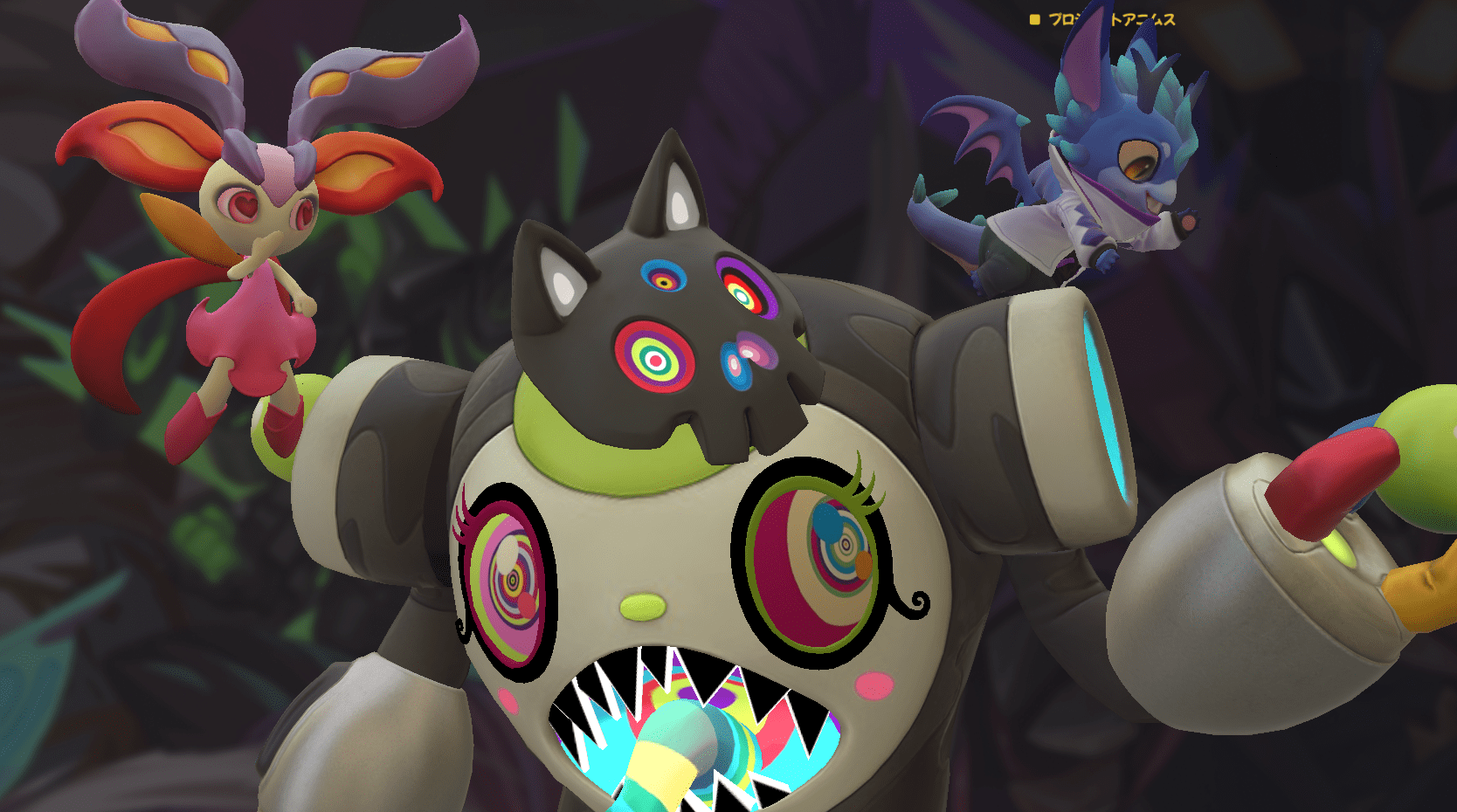
RTFKT, the innovative creator-led company renowned for its cutting-edge sneakers and metaverse collectibles, has officially unveiled its highly anticipated collection, Project Animus. This project marks a significant milestone in RTFKT’s journey, introducing a new dimension to its digital universe after a long period of development. However, the initial market response has been disappointing, with the revealed Animi trading at a floor price of 0.05 ETH, significantly lower than the eggs’ floor price of 0.09 ETH.
The Genesis of the Project Animus
Initially introduced in October 2022, Project Animus introduces a unique ecosystem of digital creatures called Animi. These Animi are designed to enhance Clone X’s avatars, offering an immersive and engaging experience for the community. The recent reveal showcased a diverse range of Animi species, each with distinct design traits and elemental attributes, breaking away from traditional trait-based rarity systems.
A New Digital Frontier: The History and Evolution of Project Animus
The Animus Project is RTFKT’s latest intellectual property, promising to revolutionize the NFT space with its unique digital creatures. The journey kicked off on October 8, 2022, with an interactive teaser event called “The Eggsperience.” This livestream event allowed attendees to explore a virtual Animus Research Facility, generating intrigue and excitement among the community.
Renowned artist Takashi Murakami played a significant role in the project, revealing the first Murakami-themed Animus creature, Saisei, on April 30, 2023. This collaboration added a layer of artistic prestige to the project, further elevating its status within the NFT community.
Animus Egg Incubation: A Journey from Egg to Animi
Clone X NFT holders had the opportunity to claim an Animus Egg until March 1, 2024. This was followed by the Animus Egg Hatching event, which ran from May 7 to June 4, 2024. During this period, holders of several RTFKT NFTs, including Clone X, Space Pod, Loot Pod, Exo Pod, and Lux Pod, were able to use a points-based system to increase their chances of hatching rarer Animi. The limited supply of Project Animus Eggs is capped at 20,000, with no public sale planned.
Mixed market reception
Despite the excitement and innovative features, the market reaction to the reveal of Project Animus has been lukewarm. Animi is currently trading at a floor price of 0.05 ETH, significantly lower than the eggs’ floor price of 0.09 ETH. This discrepancy has led to disappointment among some collectors who had high expectations for the project.
What Awaits Us: The Future of Project Animus
Following the reveal, RTFKT plans to release a collection of exclusive Animus Artist Edition characters. Holders of Clone X Artist Edition NFTs are guaranteed to get one of these special editions. The distribution will include 88 Special Edition Animus, with 8 Mythic (Dragon Sakura), 40 Shiny, and 40 Ghost Animus. The odds of receiving a Special Edition Animus are the same for all Eggs hatched, regardless of the points accumulated.
The remaining Animus characters will be distributed among unhatched Eggs, encompassing Special Edition Animus, as well as Cosmic Animus and Murakami Element from Generation 1, Generation 2, and Generation 3.
Conclusion
RTFKT’s Project Animus represents a bold step forward in the NFT space, combining cutting-edge technology with artistic collaboration to create an immersive and innovative digital ecosystem. However, the initial market reception highlights the challenges of living up to high expectations in the ever-evolving NFT landscape. As the project continues to evolve, it promises to deliver unique experiences and opportunities for its community, solidifying RTFKT’s position as a leader in the metaverse and digital collectibles arena.
Summary: RTFKT has unveiled Project Animus, introducing a unique ecosystem of digital creatures called Animi designed to enhance Clone X avatars. Despite the excitement, market response has been mixed, with Animi trading at a lower floor price than eggs. The project kicked off with an interactive event in October 2022, featuring collaborations with artist Takashi Murakami. Following the reveal, RTFKT will release special edition Animus characters. The total supply of Animus Eggs is limited to 20,000, with no public sale planned.
NFTs
The Olympics have reportedly ditched Mario and Sonic games in favor of mobile and NFTs

The long and historic partnership between Nintendo and Sega to create video games for the Olympics reportedly ended in 2020 as event organizers sought opportunities elsewhere.
Lee Cocker, who served as executive producer on several Mario & Sonic Olympics titles, said Eurogamer the International Olympic Committee let the licensing agreement lapse because it “wanted to look at other partners, NFTs and esports.”
“Basically, the IOC wanted to bring [it] “Turn inward and look for other partners so you can get more money,” Cocker added.
The 2024 Summer Olympics kicked off in Paris last week, but there were no Mario & Sonic games available in time for the event to begin – the first time this has happened since the original release in 2007 to coincide with the 2008 Beijing Summer Olympics.
Over the past two decades, there have been four Mario and Sonic adaptations for the Summer Olympics, as well as two for the Winter Olympics.
This year, instead of a Nintendo/Sega title, the IOC released Olympics Go! Paris 2024, a free-to-play mobile and PC title developed by nWay, which has worked on several Power Rangers games.
Olympics Go! allows players to compete in 12 sports and unlock NFTs from the Paris 2024 digital pin collection.
The original Mario & Sonic at the Olympic Games was announced in March 2007 and marked the first time the two mascots – once archrivals in the console wars of the 1990s – appeared together in a game.
NFTs
DraftKings abruptly shuts down NFT operation, leaving collectors panicking over vast holdings of digital tokens
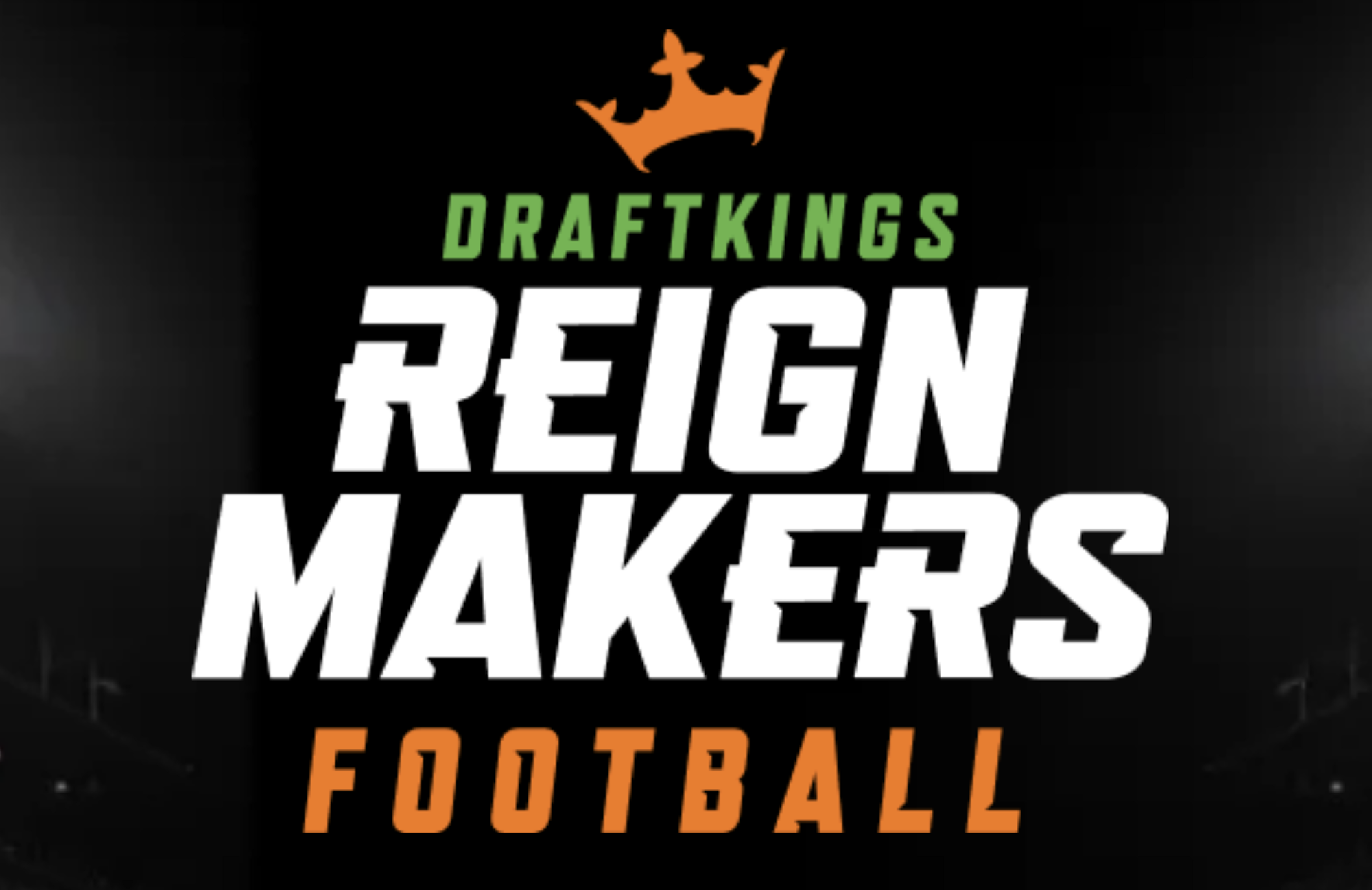
DraftKings, the daily fantasy sports and sports betting company, abruptly shut down a program called Reignmakers on Tuesday, posting a notice on its website and associated app and sending a mass email to some subset of its user base. Reignmakers, which the company launched in 2021, offered pay-to-play competitions in NFL football, PGA Tour golf and UFC mixed martial arts. The decision to eliminate the entire program, DraftKings says, was not made lightly but was forced “due to recent legal developments.”
DraftKings has yet to specify what “recent legal developments” are troubling its now-dead Reignmakers product. The company was sued in U.S. District Court in 2023 by a Reignmakers player named Justin Dufoe, who accuses the company of dealing in unregistered securities, taking advantage of relatively unsophisticated “retail investors,” and failing to market and support Reignmakers to the degree necessary to return to its users the financial benefits expected. DraftKings filed a motion in September to dismiss Dufoe’s complaint, but that motion was denied on July 2. A scheduling conference was held by the parties on July 29; Reignmakers was permanently shut down on July 30. A DraftKings spokesperson reached by Defector on Wednesday declined to confirm whether Dufoe’s complaint is the “recent legal development” that forced the company’s hand.
Users of the Reignmakers NFL product, who in recent days began murmuring on social channels about a notable lack of DraftKings activity so close to the start of the NFL preseason schedule, were caught off guard and, in some cases, devastated by the news. Members of the DraftKings Discord server, where all Reignmakers-related channels were abruptly shut down and locked following the announcement, flooded a general channel in various states of panic, sharing news, theorizing, lamenting, and, in some cases, openly worrying about whether it would be possible to recoup any decent fraction of the genuinely impressive sums of money they had invested in this DraftKings product.
Reignmakers is nominally a daily fantasy contest—users build lineups of players and then pit those lineups against other users’ lineups for cash prizes—but it’s actually a distributor of nonfungible digital tokens (NFTs), originated and sold by DraftKings, and then frequently resold on a dedicated secondary marketplace also hosted by DraftKings. At the lineup-building level, Reignmakers functions like a card-collecting game, with artificial scarcity driving the prices of the most coveted cards to insane, eye-popping heights. Reignmakers NFTs are tiered and offered in timed drops designed to heighten the sense of scarcity. A user can enter a lower-tier contest using a collection of NFTs that may have cost a few hundred dollars in total (or that were earned by purchasing random packs of NFTs that offer generally low odds of scoring top assets) and throw their lot in with hundreds of casual users competing for relatively unimpressive rewards. Random packs at the lowest tier would have prices as low as a few dollars; mid-tier cards—Star and Elite tiers, I’d guess—could cost a player upwards of $1,000.
But players interested in hunting down the biggest payouts, not just from games but from leaderboard prizes and other assorted prizes, would need to enter higher-tier games, and to enter the higher-tier games, a user’s collection needed to include higher-tier NFTs. DraftKings ensured that these cards were extremely scarce and could only be purchased directly on the marketplace at prices that any reasonable person would consider utterly insane.
For example, the highest-tier Reignmaker contests (called the Reignmakers tier, of course) have in the past been limited to listings with at least two of the highest-tier, rarest NFTs (also the Reignmaker tier) plus three NFTs from the second-highest tier (Legendary). NFTs at these tiers are expensive. Not just expensive in the way that, like, a steak dinner is expensive, but expensive in the way that buying even one of them should trigger a mandatory visit to a gambling addiction counselor, if not sirens and a straitjacket. Back in 2022a Reignmaker-level Ja’Marr Chase NFT from something called the Field Pass Promo Set could be purchased directly from the DraftKings Reignmaker Marketplace for a whopping $32,100.
Reignmakers users purchased NFTs at various levels with the expectation that owning them would convey better odds of winning contests hosted on DraftKings. This was the gamification element of Reignmakers, which emerged several months after DraftKings began trading and minting its NFTs. But as with all NFTs, a very large part of the real appeal for its buyers was the expectation, however insane, that these worthless, virtually worthless, infinitely duplicable digital images would increase in value over time. Now that both the Reignmakers game and the Reignmakers marketplace have been shut down, Reignmakers NFT holders are worried that their investments may have suddenly lost all monetary value. One Discord user described Tuesday as “a bad day to wake up and realize you have $2,000 worth of unopened NFL Rookie Packs”; Another user asked the group if they should expect “a refund” on the $10,000 they’ve already spent on Reignmakers NFTs this year. A pessimistic Reddit user posted tuesday that they would sue DraftKings if they were forced to take a total loss on a Reignmakers NFT collection worth approximately $100,000.
The game (scam?) was built to make numbers like these not only possible, but somewhat easily achievable. A user who intended to compete from a position of strength in multiple overlapping high-profile contests at the same time, and who had been in the blockchain madhouse for a period of years, could easily have spent six figures on Reignmakers NFTs. DraftKings used non-gaming incentives to entice players to spend more and more money, much like casinos give away free suites to players who over-bet on blackjack. Another Reddit user lamented the loss of the additional prizes and ranking bonuses he had hoped to earn in the upcoming NFL season by having a portfolio of NFTs that had reached the highest levels of value and prestige. “I was already loaded up on 2024 creation tokens and rookie debut cards,” said this Reignmakers userwho claimed his portfolio was finally “close to the top 250 overall.”
Dufoe’s complaint says the NFTs minted by DraftKings for Reignmakers qualify as securities, function like securities, and should be regulated as securities. In its motion to dismiss, DraftKings attempted to position its NFTs as game pieces — eye-wateringly expensive, yes, but essentially the same thing as Magic: The Gathering cards or Monopoly hotels. The court, in resolving these arguments, applied what’s known as “the Howey test,” referencing a case from 1946 in which the U.S. Supreme Court established a standard for determining whether a specific instrument qualifies as an investment contract. Judge Dennis J. Casper, in ruling against DraftKings’ motion, concluded that Dufoe could plausibly argue that Reignmakers’ NFT transactions represent “the pooling of assets from multiple investors in such a manner that all share in the profits and risks of the enterprise,” arguing that DraftKings’ absolute control over the game and marketplace effectively binds the financial interests of the company and the buyers, the latter of whom depend on the viability of both for their NFTs to retain any value.
Reignmakers users are different from Monopoly players in at least one crucial way: A person who buys a Monopoly board has no expectation from Hasbro that those little red and green pieces will appreciate in value. It’s a game! No matter what any hysterically conflicted party may say to the contrary, that’s not what NFT collecting is. DraftKings had been selling Reignmakers NFTs for months before they were gamified, and Dufoe, in his complaint, cites public comments made by DraftKings spokespeople that seem to explicitly position Reignmakers NFTs as assets with independent monetary value beyond their utility in Reignmakers contests. Judge Casper, in his ruling on the motion to dismiss, cites a Twitter account associated with a podcast run by DraftKings CEO Matthew Kalish, who in a tweet described NFTs as “the opportunity to invest in startups, artists, operations, and entrepreneurs all at once.” This is probably the kind of thing that NFT peddlers should stop saying. This advice assumes, of course, that NFTs will continue to exist as instruments on the other side of this and other lawsuits.
DraftKings has posted a worryingly sparse FAQ at the bottom of the your ad Tuesday, anticipating but largely failing to address questions from players who see this as yet another in a long line of brutal blockchain rug pulls. In a hilarious reversal of existing Reignmakers policy, Reignmakers users are now allowed by DraftKings to withdraw their Reignmakers NFTs from their DraftKings portfolios and into their personal NFT wallets, where those NFTs will have precisely zero value, to anyone, for the rest of all time. There’s also vague language about Reignmakers users having the option to “relinquish” their NFTs back to DraftKings in exchange for “cash payments,” subject to “certain conditions” and according to an as-yet-unspecified formula that will take into account, among other things, the “size and quality” of a player’s collection.
Reignmakers users are not optimistic. Those who claim to have been victims of other blockchain market crashes are warning their peers on Discord and Reddit to expect payouts that amount to pennies on the dollar; in the absence of any clarifying information, users are unsure whether cashing out their NFTs from Reignmakers to their personal NFT wallets, for reasons that completely pass any and all understanding, would effectively preclude the possibility of delivering these silly digital tokens back to DraftKings. It remains to be seen what exactly DraftKings has in mind with the “certain conditions” attached to the delivery process. There is much that has yet to be resolved. A DraftKings spokesperson contacted by Defector indicated that more time would be needed to answer a list of specific questions and issued a statement noting that it is “in DraftKings’ DNA to innovate and disrupt to provide the best possible gaming experiences for our customers.” The original complaint is embedded below.
Do you know anything about the demise of Reignmakers, either from the consumer side or from the DraftKings side? We’d love to hear from you. Get it in touch!
Recommended
NFTs
There Will Be No More ‘Mario & Sonic’ Olympics Because of NFTs

Nintendo and SEGA have been teaming up with the Olympics for several years now in the popular Mario & sonic in the Olympic Games series, but a new report claims the International Olympic Committee has abandoned the series in favor of new deals in eSports and NFTs.
According to Eurogamer“A veteran behind the series,” Lee Cocker, told the outlet that the IOC chose not to renew its license with SEGA and Nintendo, letting it expire in 2020. “They wanted to look at other partners and NFTs and eSports,” Cocker told Eurogamer. “Basically, the IOC wanted to bring [it] turn inward and look for other partners so they could get more money.”
Mario & Sonic at the Olympic Games is a series that has been running since 2008, with six main games covering the regular and Winter Olympics. In the games, players could control various characters from the Mario and Sonic franchises and compete in Olympic sporting events.
It’s no secret that NFTs are a big part of this year’s Paris 2024 Olympics. Olympics Go! Paris 2024 is a mobile and mobile-connected game your site states that players can “join the excitement of the Paris 2024 Olympic Games with nWay’s officially licensed, commemorative NFT Digital Pins collection honoring Paris 2024!”
As for eSports, Saudi Arabia will host the ESports Olympic Games in 2025. This is part of a partnership with the Saudi National Olympic Committee (NOC) that is expected to last for the next 12 years and is expected to feature regular events.
IOC President Thomas Bach said: “By partnering with the Saudi NOC, we also ensure that Olympic values are respected, in particular with regard to the game titles on the programme, the promotion of gender equality and the engagement with young audiences who are embracing esports.”
In other news, Someone claimed they’re suing Bandai Namco because Elden Ring is too difficult.
-

 News7 months ago
News7 months agoMore Crypto AI Alliances Emerge Following $7.5 Billion Token Merger — TradingView News
-

 News7 months ago
News7 months agoOver 1 million new tokens launched since April
-
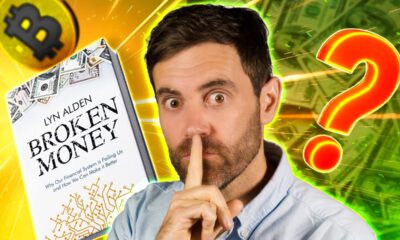
 Videos8 months ago
Videos8 months agoMoney is broke!! The truth about our financial system!
-
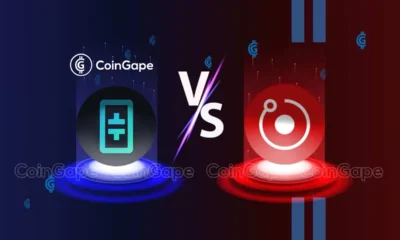
 Altcoins7 months ago
Altcoins7 months agoRender vs. Theta; Which DePIN Altcoin to buy in May
-
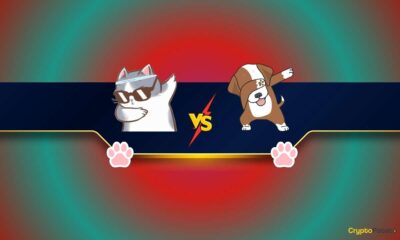
 Memecoins7 months ago
Memecoins7 months agoChatGPT Analytics That Will Work Better in 2024
-
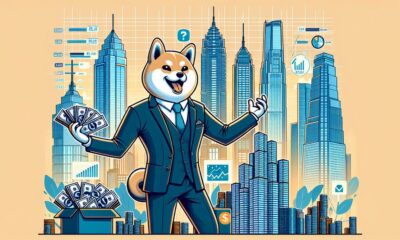
 Altcoins7 months ago
Altcoins7 months agoAltcoin Investments to create millionaires in 2024
-

 NFTs8 months ago
NFTs8 months agoSurprisingly, Bored Apes is now laying off employees as the NFT market disintegrates
-

 Videos7 months ago
Videos7 months agoFantom: Potential FTM Price and BIG Updates – The Latest!!
-

 News5 months ago
News5 months agoInvest Now: The Hottest New Cryptocurrencies of August 2024 That Could Skyrocket
-
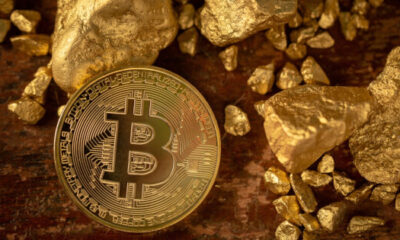
 Memecoins5 months ago
Memecoins5 months agoMemecoins dominate major derivatives in terms of open interest | Flash News Detail
-
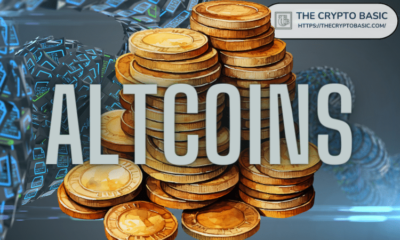
 Altcoins5 months ago
Altcoins5 months agoOn-chain data confirms whales are preparing for altcoin surge with increased buy orders
-
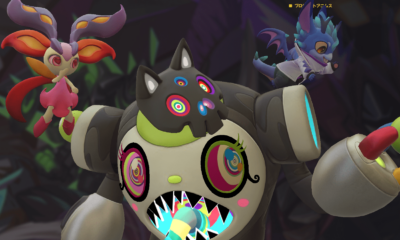
 NFTs5 months ago
NFTs5 months agoRTFKT Announces Project Animus Reveal, Launches Egg Unboxing Event Amid Mixed Reactions | NFT CULTURE | NFT News | Web3 Culture





